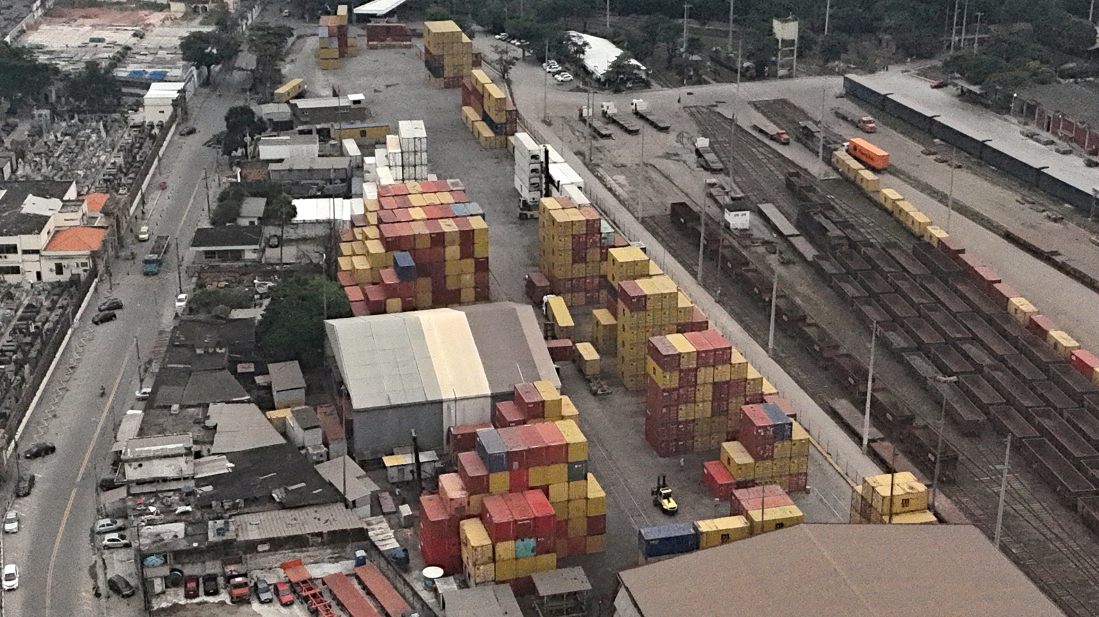Trump calls Israeli president ‘disgraceful’ over Netanyahu pardon refusal
U.S. President Donald Trump said Israeli President Isaac Herzog is “disgraceful” for not granting a pardon to Prime Minister Benjamin Netanyahu, a...

U.S. President Donald Trump has announced sweeping 50% tariffs on Brazilian imports, citing concerns over judicial overreach and human rights violations. Yet major economic sectors were spared, following weeks of negotiations and lobbying from businesses on both sides.
The new tariffs, which take effect on 6 August, exclude Brazilian exports such as civil aircraft, oil, pulp, orange juice, pig iron and fertilisers—categories representing a significant portion of trade with the U.S. The decision follows growing calls from U.S. industry and Brazilian diplomats to avoid disruption to critical supply chains.
“This is a more benign outcome than it could have been,” Brazilian Treasury Secretary Rogerio Ceron said in response to the final order. The exemptions eased market concerns, with shares in aerospace firm Embraer and pulp producer Suzano rising in São Paulo trading.
A White House factsheet linked the move to concerns about Brazil’s internal political situation, including prosecutions that U.S. officials claim target individuals and companies unlawfully. While not central to trade discussions, these cases have triggered diplomatic strain.
In Brasília, the Foreign Ministry confirmed that talks had resumed with the U.S. after a breakdown in June. Foreign Minister Mauro Vieira said he met with U.S. Secretary of State Marco Rubio to reaffirm Brazil’s readiness for further dialogue on tariff issues. He stressed that domestic judicial matters would remain outside the scope of trade discussions.
Trade analysts warned that the tariffs, even with exemptions, could still have a tangible impact. Former Brazilian trade secretary Welber Barral said Brazil exports around 3,000 product lines to the U.S., many of which will now be subject to heavier duties.
A report by the American Chamber of Commerce for Brazil found that nearly 700 products—covering 43.4% of Brazilian export value—had been excluded from the increase. However, key sectors such as beef and coffee did not make the list.
Brazil’s powerful agribusiness lobby voiced concern. The meat industry group Abiec warned of potential losses of more than $1 billion in the second half of 2025. Coffee exporters expressed hope for further talks.
Meanwhile, the mining industry and oil sector saw significant relief. The Brazilian Petroleum Institute (IBP) confirmed that suspended oil shipments to the U.S. would resume. Mining association Ibram noted that 75% of mining exports were covered by exemptions.
Despite some legal experts questioning the motivation behind the tariffs, the emphasis in Brasília remains on safeguarding exports and reopening dialogue. As trade flows adjust to the new rules, Brazilian exporters are bracing for selective impacts while pushing for broader exemptions in future negotiations.
A senior adviser to Iran’s Supreme Leader said on Tuesday that negotiations with the United States must remain focused on the nuclear issue and be grounded in realism, as Washington and Tehran prepare to resume talks mediated by Oman.
James Van Der Beek, who rose to fame as Dawson Leery in the hit teen drama Dawson’s Creek, has died aged 48 following a battle with stage 3 colorectal cancer.
Canadian Prime Minister Mark Carney said a bridge project linking Canada’s Ontario province with the U.S. state of Michigan would contribute to cooperation between the two countries.
U.S. President Donald Trump and Prime Minister of Israel Trump hosted Netanyahu for closed-door talks focused on negotiations with Tehran, Gaza and wider rBenjamin Netanyahu ended a two-and-a-half-hour meeting at The White House on Wednesday without reaching agreement on how to move forward on Iran.
Mexican Alpine skier Lasse Gaxiola will have his mother for company on his Olympic debut but she will not be cheering him from the finish area in Saturday's giant slalom in Bormio because she will be three hours away preparing her own race.
U.S. President Donald Trump said Israeli President Isaac Herzog is “disgraceful” for not granting a pardon to Prime Minister Benjamin Netanyahu, adding that he “should be ashamed of himself”.
Ukraine’s allies have pledged nearly $48bn in military support at a meeting of the Ukraine Defence Contact Group in Brussels, vowing to intensify pressure on Russia and strengthen Kyiv’s battlefield position.
Medical group accuses paramilitary force of targeting civilians in al-Kurqal area, urges international action to protect residents.
Day 6 of the Milano Cortina 2026 Winter Olympics brought fans and photographers unforgettable moments of athleticism, determination and sheer joy. From the ice rinks of Milan to the snowy slopes of Livigno, athletes pushed themselves to the limit delivering breathtaking performances.
U.S. border chief Tom Homan said on Thursday (12 February) a federal immigration crackdown in Minnesota will end after months of raids that led to more than 4,000 arrests, mass protests and two fatal shootings.
You can download the AnewZ application from Play Store and the App Store.

What is your opinion on this topic?
Leave the first comment